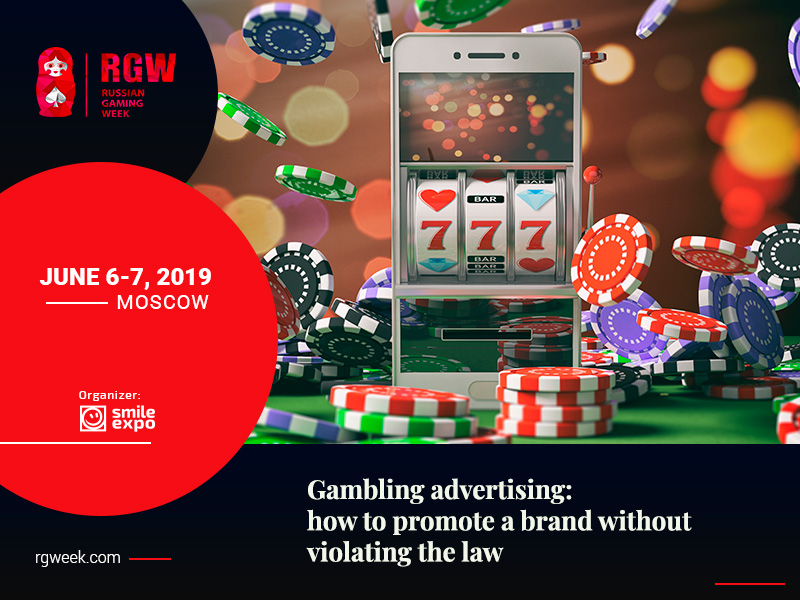Gambling Advertising Complaints
- Gambling Advertising Complaints Against
- Gambling Advertising Complaints Websites
- Gambling Advertising Complaints Companies
All forms of advertising are covered by the AANA Code of Ethics (the Code) and Ad Standards takes complaints about any gambling advertisement, including online, in an app or on social media. Complain about a gambling advertisement The Advertising Standards Authority (ASA) is the UK’s independent regulator of advertising. It enforces the UK Advertising Codes (the Codes), written by the. 6.3 The Licensee shall ensure that advertising and marketing materials contain a responsible gambling message. At a minimum, the ConnexOntario Help Line phone number and website must be included on the Ticket, on any other material that is distributed to the players, and on the Licensee’s website if there is information available about.
Related Articles
DCMS pushes for Ofcom to become the regulator of ‘online environments’

Gambling industry must take ‘holistic approach’ to 2005 Act review

UKGC issues festive warning on scam lotteries
The Guardian has reported that the Department for Digital, Culture, Media & Sport (DCMS) will officially launch its review of the ‘2005 Gambling Act’ next week – undertaking the biggest reform of the UK betting sector since the ‘Blair Era’.
The review, which was marked as a 2019 General Election pledge by PM Boris Johnson, will review all current gambling legislations with the aim of reforming the industry for the ‘benefit of society’ and bringing the sector’s consumer protections into the ‘digital age’.
DCMS will publish its ‘terms of reference’ for the review, which will present key criteria that will be addressed, with submitted proposals referencing a ban on betting sponsorships and online casino stake limits that mirror the government’s 2019 FOBTs £2 reductions.
The review of the Gambling Act has garnered wide-ranging opinions from across the political spectrum, with diverse stakeholders considering how the UK gambling sector should be governed as well as key areas related to consumer protections, safer gambling, advertising, operator conduct and corporate governance.
Chaired by Lord Garde of Yarmouth, this summer the House of Lords Select Committee on ‘gambling’s social & economic impacts’ recommended 66 critical areas that required urgent action from the government.
The Select Committee report urged the government to fix ‘system failures’ across the UK business landscape encompassing banking, loans and personal finance that had heightened the criminal effects of problem gambling.
Beyond industry reforms, the review will further carry an assessment of the UK Gambling Commission’s (UKGC) governance of gambling. MPs have questioned the department’s ‘National Strategy’ and its close engagement with industry incumbents.
Meanwhile, a cross-party group of peers within the House of Lords had undertaken a review of gambling industry safeguards, duties and customer protections to identify ‘urgent changes’ that needed to be made to current regulations.
Chaired by Lord Foster of Bath (Liberal Democrat), the Peers for Gambling Reform was created to promote the recommendations of the House of Lords Select Committee on Gambling.
Independent of government regulation, the UK gambling sector has undertaken sweeping reforms to its code of conduct and social responsibilities spearheaded by the Betting and Gaming Council (BGC).
In 2019, BGC members committed to a new advertising code, implementing a whistle-to-whistle ban on all betting advertisements during sports broadcasts.
This was backed by a pledge made by all BGC members to ensure that 20% of all TV, radio and online advertising was dedicated to safer gambling messages during the first and second UK lockdowns.
Meanwhile, UK gambling’s biggest operators bet365, Flutter, William Hill and GVC Holdings have pledged to fund £100 million towards improving GambleAware’s national research, education and treatment (RET) programmes.
Gambling Advertising Complaints Against
During 2020, all BGC members also committed to new standards on game designs, safeguards on digital advertising and reforming VIP programmes to be for over 25s.
Of heightened concern, MPs have demanded that DCMS guarantees that its review will impose an over 18s requirement on the purchase a National Lottery tickets and scratch cards – following criticism by England’s Children’s Commissioner who alleged that Camelot had abused its position of power.
Reports from earlier in the year have suggested that key figures from within 10 Downing Street, including Boris Johnson and Munira Mirza (the director of the No10 Policy Unit), have also taken a personal interest in the ‘long-awaited’ reforms.
Gambling Advertising Complaints Websites
The Prime Minister is said to be keen on rolling back the legislation introduced by former Prime Minister Tony Blair, which he is reported to believe is a vote-winner among conservatives.
Next year will see DCMS carry a bloated schedule demanded by the government, in which the department will oversee COVID-19 recovery for tourism and heritage, the reform of UK’s digital protections, a restructuring of the BBC and the competition for the fourth National Lottery contract.
6.1 The Licensee shall ensure that advertising and marketing materials shall not:
Gambling Advertising Complaints Companies
- be designed to appeal primarily to minors;
- appear on displays in primarily youth-oriented locations;
- use individuals who are, or appear to be minors, to promote gambling; however, if the intent of the marketing campaign is to identify minors as a benefactor of the licensee’s programs, such advertising is permitted;
- imply that chances of winning increase
- the longer one plays; or
- the more one spends.

6.2 The Licensee shall ensure that advertising and marketing materials and communications shall not be misleading. At a minimum, materials and communications shall not:
- imply that playing a lottery scheme is required for social acceptance, personal success, financial success or resolving economic, social or personal problems;
- contain endorsements by well-known personalities that suggest that playing lottery schemes have contributed to their success;
- encourage play as a means of recovering past gambling or other financial losses;
- present winning as the most probable outcome, or misrepresent a person’s chances of winning a prize; or
- suggest that skill can influence the outcome.
6.3 The Licensee shall ensure that advertising and marketing materials contain a responsible gambling message. At a minimum, the ConnexOntario Help Line phone number and website must be included on the Ticket, on any other material that is distributed to the players, and on the Licensee’s website if there is information available about the Raffle.
6.4 The Licensee shall ensure that all applicable Electronic Raffle Personnel have the knowledge to direct players to the ConnexOntario Help Line and website.

6.5 The Licensee may accept sponsorships as long as it is still clear to the public that the Raffle is charitable and is conducted and managed by the Licensee. Sponsorship revenue shall not be deposited into the lottery trust account.